#robert godwin
Explore tagged Tumblr posts
Text

Peary by Frank Godwin
Robert Peary in his 1909 expedition to the North Pole
34 notes
·
View notes
Text







WWF In Your House Good Friends Better Enemies (1996)
#90s#wwf#jake the snake roberts#british bulldog#ultimate warrior#goldust#marlena#terri runnels#razor ramon#scott hall#vader#jim cornette#the godwins#chris candido#sunny#sunny wwf#tammy sytch#shawn michaels#diesel#kevin nash
13 notes
·
View notes
Text

Joscelyn Godwin, Robert Fludd, Hermetic Philosopher and Surveyor of Two Worlds
1K notes
·
View notes
Text
Seeking a book to read this winter break?
Brand "New" List of Additions to the Arthurian Preservation Project Archive
In time, all books will be added to my Retellings List or Medieval Literature List respectively, and possibly a third page for handbooks/informational resources. Retellings may be under construction for a bit as I reformat to accommodate the influx in links. There are some duplicates—Alan Lupack's and Mike Ashley's anthologies occasionally contain a one-off story I've otherwise included in an individual volume of collected works by the author.
Links connect to corresponding PDFs on my Google drive where they can be read and downloaded for free. But if you like what I do, consider supporting me on Ko-Fi. I haven't yet read these listings in full; I cannot attest to their content or quality. A big thank you to @wandrenowle for the help collecting!

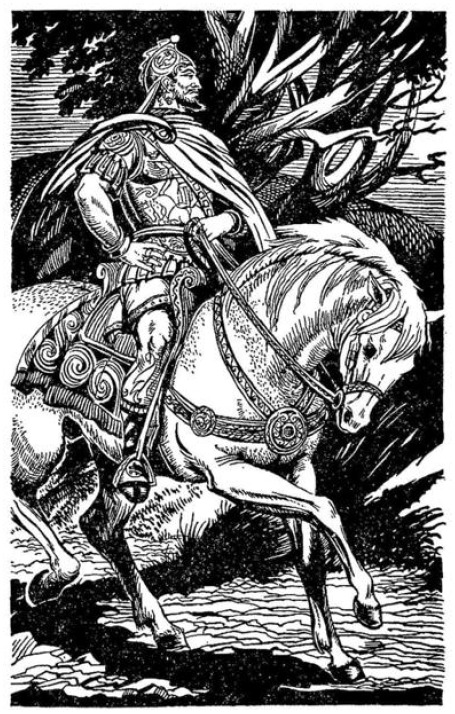
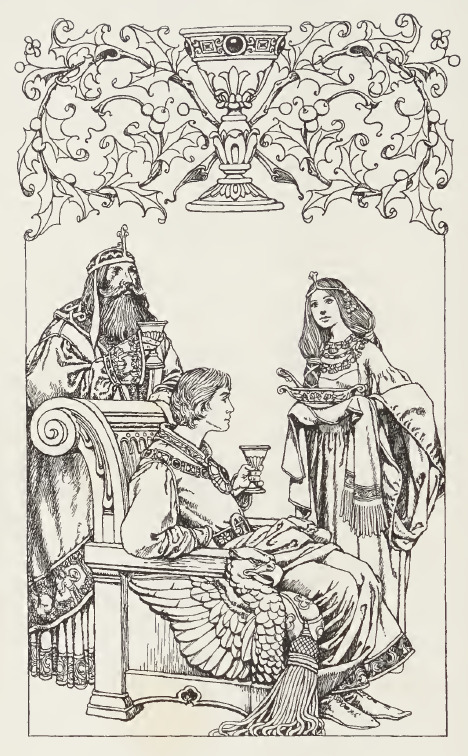
Modern Retellings
Merlin in Love by Aaron Hill (1790) — Opera about Merlin & his love interest Columbine.
The Fortunate Island by Max Adeler (1882) — A family shipwrecks on an island only to discover its populated with Arthurian knights, including Dinadan, Bleoberis, & Agravaine.
Sir Marrok by Allen French (1902) — Werewolf knight.
The Story of Sir Galahad by Mary Blackwell Stirling (1908) — Illustrated retelling of Malory's Grail Quest.
The Story of Parzival by Mary Blackwell Stirling (1911) — Illustrated retelling of Eschenbach's Parzival.
Stories From King Arthur and His Round Table by Beatrice Clay (1913) — Illustrated retelling of Malory.
Cloud Castle and Other Papers by Edward Thomas (1922) — Contains two Arthurian entries: the story Bronwen The Welsh Idyll about Agravaine & his lady Bronwen, & the essay Isoud about the Prose Tristan.
Collected Poems by Rolfe Humphries (1924-1966) — Contains Dream of Rhonabwy about Owain & Arthur's chess game, A Brecon Version about Essylt/Trystan, Under Craig y Ddynas about Arthur's "sleeping" warriors, & The Return of Peredwr about the Grail Hero's arrival to court.
Peronnik the Fool by George Moore (1926) — The quest for the Holy Grail based on Breton folklore.
The Merriest Knight by Theodore Goodridge Roberts (1946-2001) — Anthology of short stories all about Dinadan.
The Eagles Have Flown by Henry Treece (1954) — A third Arthurian novel from Treece detailing the rivalry between Artos & Medrawt, with illustrations this time.
Launcelot, my Brother by Dorothy James Roberts (1954) — The fall of Camelot from Bors perspective, as a brother of Launcelot.
To the Chapel Perilous by Naomi Mitchison (1955) — Two rival journalists report about the goings on in Camelot.
The Pagan King by Edison Marshall (1959) — Historical fiction from the perspective of Pagan King Arthur.
Kinsmen of the Grail by Dorothy James Roberts (1963) — The Grail Quest but Gawain is Perceval's step dad.
Stories of King Arthur by Blanche Winder (1968) — Illustrated retelling of Malory.
Drustan the Wanderer by Anna Taylor (1971) — Retelling of Essylt/Drustan.
Merlin's Ring by H. Warner Munn (1974) Gwalchmai is a godson of Merlin's that uses his ring to travel through the magical & real worlds.
Lionors, Arthur's Uncrowned Queen by Barbara Ferry Johnson (1975) — Story of Arthur's sweetheart & mother of his son, Loholt.
Gawain and The Green Knight by Y. R. Ponsor (1979) — Illustrated prose retelling of SGATGK poem.
Firelord (#1), Beloved Exile (#2), The Lovers: Trystan and Yseult (#3) by Parke Godwin (pseudonym Kate Hawks) (1980-1999) — Book 1 Arthur, book 2 Guinevere, book 3 Trystan/Yseult.
Bride of the Spear by Kathleen Herbert (1982) — "Historical" romance retelling of Teneu/Owain.
Invitation to Camelot edited by Parke Godwin (1988) — Anthology of assorted Arthurian stories from authors like Phyllis Ann Karr & Sharan Newman.
Arthur, The Greatest King - An Anthology of Modern Arthurian Poems by Alan Lupack (1988) — Anthology of modern Arthurian poetry by various authors including E. A. Robinson, William Morris, C. S. Lewis, & Ralph Waldo Emerson.
The White Raven by Diana L Paxson (1988) — "Historical" romance retelling of Drustan/Esseilte.
Merlin Dreams by Peter Dickinson (1988) — Illustrated by Alan Lee.
The Pendragon Chronicles edited by Mike Ashley (1990) — An anthology of Arthurian stories, including some translations such as the Lady of the Fountain, and retellings by John Steinbeck & Phyllis Ann Karr.
Grails: Quest of the Dawn edited by Richard Gilliam (1992-1994) — Anthology of Grail Quest stories.
The Merlin Chronicles edited by Mike Ashley (1995) — Anthology about Merlin from authors like Theodore Goodridge Roberts & Phyllis Ann Karr.
The Chronicles of the Holy Grail edited by Mike Ashley (1996) — Anthology about the Holy Grail from authors like Cherith Baldry & Phyllis Ann Karr.
The Chronicles of the Round Table edited by Mike Ashley (1997) — Anthology of assorted Arthurian stories from authors like Cherith Baldry & Phyllis Ann Karr.
Sleepless Knights by Mark H Williams (2013) — 1,500 years have passed but Lucan the Butler’s still on the clock.
Medieval Literature
Three Arthurian Romances (Caradoc, The Knight with The Sword, The Perilous Graveyard) [This is on the Internet Archive & cannot be downloaded. If someone could help with that, lmk!] translated by Ross G. Arthur
Le Bel Inconnu (The Fair Unknown) translated by Colleen P. Donagher
Segurant The Knight of the Dragon (Portuguese) edited by Emanuele Arioli
An Anglo-Norman Reader by Jane Bliss
Stanzaic Morte Arthur / Alliterative Morte Arthure edited by Larry D. Benson
Sir Perceval de Galles / Ywain and Gawain edited by Mary Flowers Braswell
Sir Gawain: Eleven Romances and Tales edited by Thomas Hahn
Prose Merlin edited by John Conlee
The Middle English Breton Lays edited by Eve Sailsbury & Anne Laskaya
Il Ciclo Di Guiron Le Courtois Volumes 1-7 (Italian)
Wace's Roman de Brut / Layamon's Brut by Robert Wace & Eugene Mason
Arthurian Literature by Women edited by Alan Lupack & Barbara Tepa Lupack
Handbooks
Studies in the Fairy Mythology of Arthurian Romance by Lucy Allen Paton (1960)
A Companion to the Gawain-Poet edited by Derek Brewer (1990)
The Mammoth Book of King Arthur edited by Mike Ashley (2005)
A Bibliography of Modern Arthuriana 1500-2000 by Ann F. Howey & Stephen R. Reimer (2006)
#arthurian preservation project#arthuriana#arthurian mythology#welsh mythology#arthurian legend#arthurian literature#king arthur#queen guinevere#sir gawain#sir lancelot#sir percival#sir perceval#sir mordred#sir galahad#sir owain#sir yvain#sir kay#sir bedivere#sir bedwyr#merlin#sir tristan#queen isolde#sir marrok#sir lucan#lionors#sir loholt#sir bors#sir agravain#sir agravaine#my post
127 notes
·
View notes
Text
[Emma of Normandy] was one of the nine known children of Richard I of Normandy; almost certainly his daughter by his Danish-descended wife Gunnor and thus the sister of Richard II, who became duke of Normandy after his father in 996, and of Robert Archbishop of Rouen. She was the aunt of dukes Richard III and Robert and great-aunt of Duke William, better known in England as the Conqueror.
In 1002 she came to England to marry King Athelred II, the Unready. Emma was not the English king’s first wife. He had been married before, once if not twice, and already had a large family of six sons and at least four daughters. At the time of the marriage Emma’s French/Norman name was changed for an English one, Aelfgifu. She bore Athelred three children: two sons and a daughter, Edward, the future Confessor, Alfred and Godgifu.
Emma’s marriage took place against the background of the Scandinavian attacks which plagued Athelred’s England. These culminated in Swein of Denmark’s conquest of England in 1013. Emma, her sons and later her husband then took refuge at the Norman court with her brother Richard II. After Swein’s death early in 1014, Athelred returned to rule briefly until his own death in 1016. An armed struggle for the throne ensued between Athelred’s eldest surviving son, Emma’s stepson, Edmund Ironside, and Swein’s son, Cnut. Fierce fighting, the division of the kingdom, then Edmund’s death made Cnut king of all England by the end of 1016.
In 1017 Cnut, the Danish conqueror, married Emma, Athelred’s widow. By this second husband she had two more children, a son Harthacnut and a daughter, Gunnhild, who in 1036 married Henry III, then king of the Romans, future emperor. Again Emma was not a first wife. Cnut already had a union with an English noble woman, Aelfgifu, daughter of a former ealdorman of York, a union which his marriage to Emma [may or may not] have terminated. Before or after 1016 Aelfgifu bore him two sons, Swein and Harold Harefoot. Cnut’s reign is the second stage of Emma’s career in England, and is marked by most references to her in charters and similar documents.
The death of Cnut late in 1035 put an end to this phase and inaugurated a third, dominated by questions concerning the succession to his several kingdoms of Denmark, Norway and England, particularly concerning that to the English throne. During his lifetime Cnut had sent his son Swein and Swein’s mother Aelfgifu to act as regents in Norway, and dispatched Harthacnut to be regent in Denmark. At the time of his father’s death, Harold Harefoot was the only son in England. From late 1035 until 1037 the English throne was once again at issue. Harthacnut remained in Denmark, whilst Harold collected support in England. At first Emma remained at Winchester, with Cnut’s military household and in possession of the royal treasure; Godwine earl of Wessex was close to her. In 1036 her sons by Athelred, Edward and Alfred, returned to England from their refuge in Normandy. Alfred was captured, blinded and died in circumstances which left suspicion attached to both Godwine and Harold. Edward, who had gone to his mother at Winchester, now returned quickly to Normandy. In 1037 Emma’s stepson Harold became king of the English and she was exiled to Flanders; there she lived, enjoying the hospitality of Count Baldwin, until 1039.
In that year her son Harthacnut joined her, and in 1040, on the death of Harold Harefoot, mother and son, accompanied by a fleet, returned to England where Harthacnut was accepted as king. Emma now entered the final stage of her life, as queen-mother. In 1041 Edward was recalled from Normandy, and associated in some way in rule; after Harthacnut’s premature death in 1042, he became king in turn. A year later, in 1043, Edward deprived his mother of much treasure and land. Although Emma was restored to court by 1044, little or no evidence has survived of her activity after this and she disappears from view after 1045. Emma probably lived the rest of her life at Winchester, where she died on 6 March 1052. She was buried there in the Old Minster alongside her second husband, Cnut.
— Pauline Stafford, Queen Emma and Queen Edith: Queenship and Women's Power in Eleventh-Century England
#historicwomendaily#emma of normandy#11th century#english history#anglo-saxons#women in history#my post#king cnut#i LOVE mini-biographies like this <3
18 notes
·
View notes
Text
Some views on the state:
According to the Christian tradition, the state was evil but necessary because man's nature was evil; according to the rational faith in nature preached by the Enlightenment, the state was unnatural and therefore evil. Marked traces of this view are found, among others, in Morelly and Rousseau; but it was William Godwin who, in his Enquiry Concerning Political Justice, produced what rightly ranks as the bible of anarchism. According to Godwin property, marriage and the state are all offences against nature and reason:
"Above all [he writes], we should not forget that government is an evil, an usurpation upon the private judgment and individual conscience of mankind; and that, however we may be obliged to admit it as a necessary evil for the present, it behoves us, as the friends of reason and the human species, to admit as little of it as possible, and carefully to observe whether, in consequence of the gradual illumination of the human mind, that little may not hereafter be diminished."
And later in the same work he becomes bolder and roundly proposes "to annihilate the quackery of government". From this time forward the leading radical and socialist writers - Saint-Simon, Robert Owen, Fourier, Leroux, Proudhon - are all preoccupied with the supersession of the state and its transformation into a society of producers and consumers. It was left to Moses Hess, an early radical associate of Marx, to translate these ideas into the Hegelian terminology which was common form among young German intellectuals of the 1840s. He believed that, so long as the state existed, whatever the form of government, there would always be rulers and serfs, and that this opposition would continue "until the state, which is the condition of polarity, abolishes itself dialectically and gives place to unified social life, which is the condition of community".
Marx quickly reached the conception of the state as the instrument through which the ruling class pursued and protected its interests. In one of his earliest writings against the estate owners of the Rhineland he described "the organs of the State", in the hyperbolic style of his juvenile period, as "the ears, eyes, hands and legs by which the interest of the forest owner listens, watches, judges, defends, seizes, runs". The modern state "exists only for the sake of private property"; it is "nothing more than the form of organization which the bourgeois necessarily adopt both for internal and external purposes for the mutual guarantee of their property and interests". But private property in its capitalist phase produces its own antithesis, the propertyless proletariat which is destined to destroy it. As Hess had said, the state is the expression of this contradiction, of this conflict between classes. When this contradiction is resolved by the overthrow of private property and the victory of the proletariat (which wiII, through the consummation of its own victory, cease to be a proletariat), society will no longer be divided into classes, and the state wiII have no further raison d'etre. The state is thus a "substitute" for collectivism.
The Bolshevik Revolution 1917-1923, Volume 1, by E H Carr, pg 233-234
17 notes
·
View notes
Text
The first frame of The Sympathizer reminds us that what is known in the United States as the “Vietnam War,” the Vietnamese refer to as the “American War.” When something as basic as what to call the catastrophe that killed and uprooted millions of people is in such fundamental dispute, it’s clear that nothing about this is simple.
Dichotomies and seeing things from both sides are at the heart of this series, an adaptation of Viet Thanh Nguyen’s Pulitzer Prize-winning 2015 novel. Our hero, the child of a French father and Vietnamese mother, known only as the Captain (Hoa Xuande), spins this yarn as a confession in a North Vietnamese reeducation camp shortly after the end of the war. He was working, he claims, as a deep-cover mole for the Communists with the secret police in Saigon, where he was assigned to a somewhat buffoonish General (Toan Le). Though eager to celebrate the liberation of the south, the Captain’s handler orders him to join the General and his coterie when they flee to America. He was educated in the United States, understands (maybe loves?) the culture, and has an established rapport with the General’s CIA connection. His job is to monitor the situation there and report back.
So how does he end up captured by the North Vietnamese? Well, this is complicated, and the route to get there wickedly lampoons the military, academia, Hollywood, and, perhaps a bit more painfully, the mindset of war refugees incapable of adjusting to new surroundings. The Sympathizer is about tragedy, but, like Catch-22 or MASH, can also be called a comedy. I guess it’s all where your sympathies lie.
One of the bigger gags is the casting, with Oscar winner Robert Downey Jr. hamming it up in several makeup-heavy roles. (This is not an explicit nod to the Vietnam War film spoof Tropic Thunder, but that history adds some extra spice to the stew.) We first meet him as Claude, the gruff CIA man who helped groom the Captain when he was educated in America. (When, specifically, he decided to align with the Communists is unclear, though the real-life spy that The Sympathizer is very loosely based on already considered himself a mole at that young age.) Claude later assumes false identities, just because there’s nothing this story loves more than complications.
Some of Downey’s other roles include a condescending professor of Oriental studies (swishing around in a kimono and demanding his Japanese-American assistant take more pride in her culture); a right-wing congressman (“Napalm” Ned Godwin) who grunts like Clint Eastwood and whose maniacal hatred of Communists helps him overcome his racism, thus aligning him with the General and having an anti-Castro Cuban wife; and an egocentric film director working on an Apocalypse Now-like Vietnam picture, the portrayal of which is a little unfair to Francis Ford Coppola. (Sure, he was and is dedicated to his vision as an artist, but in a mostly benevolent way, not like the snot portrayed in The Sympathizer.)
Mirroring the Captain is left-wing journalist Sonny (Alan Trong), who stayed in America after college. The Captain secretly envies his ability to be open with his Viet Cong sympathies but scorns him for not “earning it” in the homeland during the war. Naturally, they are both sleeping with the same woman (Sandra Oh).
The other key characters who double as big honkin’ metaphors are Bon (Fred Nguyen Khan), which, yes, is French for “good,” and Man (Duy Nguyen), which is English for, uh, “man.” At age 14, they formed a three-way blood bond, but the big secret is that the Captain and Man are loyal to the Communists—indeed, Man is his handler, with whom he corresponds using invisible ink and complex codes. Bon, however, is a defiant South Vietnamese who escapes to America with the Captain and the General, but whose wife and child are killed as they race to make the last flight out. This tense sequence almost one-ups the real-life chaos of the fall of Saigon.
There’s more to the tableaux of characters, especially in the Los Angeles refugee community, and while the series keeps the story moving, a great deal of the clever writing that made the book such a success translates over nicely. There are examples at every turn: The professor teaches Oriental studies at a thinly veiled Occidental College (zing!), and his book of highly influential political theory is attributed to one Richard Hedd. (I’ll let you work that one out on your own.)
That book, Asian Communism and the Oriental Mode of Destruction, is used by the Captain and Man as the foundation of their cipher, but it also contains the line eerily similar to a notorious statement by Gen. William Westmoreland: “The Oriental doesn’t put the same high price on life as that of the Westerner. Life is plentiful, life is cheap in the Orient, and as the philosophy of the Orient expresses it, life is not important.”
That preposterous sentiment is rebuked by the psychologically convalescing refugees—some of whom have turned to alcoholism, defacing property with images of the “Saigon execution” photo, or, as mentioned in one dark moment, “beating their wives just to feel like men.” As the series heads into its final third, the General (backed by the CIA) crews up for a quixotic attempt at a Bay of Pigs-like invasion via Thailand, which, of course, quickly falls apart.
The Captain isn’t just a witness to the scheme; he’s an active participant in two cold-blooded murders. (He’s still a likable guy; Hoa Xuande gives an incredible performance.) The moments of violence, however, are shot through a bleakly funny lens, in the style of the Coen Brothers. One includes a doddering half-deaf granny in the same frame as a life-or-death struggle.
The first three episodes are directed by the series’ co-creator, Park Chan-wook, the South Korean auteur of Oldboy, The Handmaiden, and the recent John le Carré adaptation The Little Drummer Girl. His episodes all contain a noticeable cinematic sparkle, making clever use of match cuts that weave the complex narrative in simplifying ways. The remainder of the series is directed by Brazilian Fernando Meirelles (The Constant Gardener, The Two Popes) and British director Marc Munden (The Secret Garden).
All seven episodes look terrific, from the period automobiles and Budweiser cans to the Vietnamese “hamlet” in both the Captain’s memory and the Hollywood film production where the Captain is acting as an authenticity consultant, blending art and life with helicopter blades. There’s also a keen deployment of fresh music from the era—not a hint of Creedence Clearwater Revival!—but instead tunes like “Dynomite!” by Bazuka (a funky number with a mention of armaments) and fiery free jazz by Ornette Coleman. It all builds to our hero’s tortuous showdown with his homeland, his identity, and himself. Unless you’ve read the book, there’s really no way to predict the ending, and yet once you see it you realize that it’s perfect.
America’s counterculture, instigated significantly by the Vietnam War (but also civil rights and the pill), is just about the most heavily covered topic in movies and television, but there are so few projects from the Vietnamese perspective. Of course, as with any group, there isn’t just one Vietnamese point of view. The Sympathizer, almost magically, is able to fit many in, even if it almost destroys everyone in its path. There hasn’t been a series this complex—and also so funny—in a very long time.
15 notes
·
View notes
Text
Royal Rumble Marathon: 1996
We’re rumbling into 1996.
Spoilers for past Rumbles.
Sunny, from her bathtub, warns us viewer indiscretion is advised. The Attitude Era doesn’t officially begin until 1997 but hints of it began way back in 1995 with the Pamela Anderson skit and continues with Sunny’s vignettes.
The undercard:
Jeff Jarrett vs Ahmed Johnson. Meh.
The Bodydonnas (Chris Candido/Tom Prichard, accompanied by Sunny) vs the Smoking Guns (Billy & Bart) for the WWF Tag Team titles. More meh.
Billionaire Ted skit with a fake Hogan, Savage, and Mean Gene. We’re wasting pay per view time on this?
Recap of the Razor Ramon – Goldust feud. Mr Machismo doesn’t appreciate Golddust’s flirtations.
Golddust (accompanied by Marlena) vs Razor Ramon for the Intercontinental title. Was this Terri Runnel’s debut for the WWF? The commentators refer to Marlena as an “unknown woman”. Golddust and Marlena’s gimmicks are forerunners to the Attitude Era. Marlena causes a distraction as the 1-2-3 Kid attacks Razor, allowing Dustin to pin Ramon and become the new Intercontinental champion.
Hype vignettes for Royal Rumble participants: Owen, Jake Roberts, Jerry Lawler, Vader, Shawn,
For the first time the Rumble does not end the pay per view – we still have a Bret/Taker match for the World championship. I never like when the Rumble itself doesn’t end the pay per view.
The entrants, in order of appearance:
Hunter Hearst Helmsley
Henry Godwin
Bob Backlund
Jerry Lawler
Bob “Spark Plug” Holly
Mabel (accompanied by Mo) Mo remains at ringside – there doesn’t seem to be year to year consistency on whether seconds are allowed to remain at ringside.
Jake “the Snake” Roberts
Dory Funk Jr (Vince notes Terry was also invited but is watching the ppv from Germany)
Yokozuna
1-2-3 Kid (spends his first few minutes in the Rumble attempting to avoid an angry Razor)
Takao Omori (Vince actually mentions All-Japan by name!)
Savio Vega (formerly known as Kwang)
Vader (accompanied by Jim Cornette)
Doug Gilbert (Henning & Vince mention both USWA and Eddie Gilbert, Doug won a tournament in Memphis to qualify for the tournament)
Squat Team Member #1 (1/2 of the Headshrinkers)
Squat Team Member #2 (1/2 of the Headshrinkers)
Owen Hart
Shawn Michaels
Hakushi
Tatanka
Aldo Montoya
Diesel
Kama
“The Ringmaster” Steve Austin
Barry Horowitz
Fatu
Isaac Yankem, DDS
Marty Janetty
Davey Boy Smith
Duke Droese
Winner: Shawn Michaels
Longest performance: Hunter Hearst Helmsley
First-time Rumblers: Hunter, Dory Funk Jr, 1-2-3 Kid, Omori, Vader, Doug Gilbert, the Headshrinkers, Hakushi, Aldo Montoya, Steve Austin, Barry Horowitz, Isaac Yankem
Surprise Entrants: Dory Funk, Omori, Doug Gilbert, the Headshrinkers
We have two “clear the ring without eliminating everyone” spots: Henry Godwin with his slop bucket (Backlund and Lawler are the recipients) and Jake Roberts using Damian (his snake) – Lawler gets covered with Damian. Was Lawler on someone’s shit list?
Vader does the “eliminate everyone” spot but as he was previously eliminated none of his eliminations count.
Lawler is the first participant in a Rumble to hide under the ring.
1996 is the first year all participants receive entrance music. Finally! A small thing but it adds to the presentation.
The pay-per-view ends with Bret Hart vs the Undertaker (accompanied by Paul Bearer). Diesel causes a disqualification, costing Taker the match. The match was fine but I’m not a fan of Taker.
Interviews with Gorilla Monsoon, Shawn, Diesel, Vader, and Jim Cornette.
Rating: 4 out of 10
Wrestlers and others who have passed on: Howard Finkel, Curt Hennig, Chris Candido, Razor Ramon, Mable (Visera), Yokozuna, Vader, Owen, Paul Bearer, Gorilla Monsoon
Total number of deceased individuals: 10 (down 5 from the previous Rumble).
#wwf#wwe#royal rumble#golddust#shawn michaels#diesel#kevin nash#jerry lawler#vader#undertaker#bret hart
7 notes
·
View notes
Text











WWF Summerslam 1996
#90s#wwf#shawn michaels#vader#savio vega#owen hart#yokozuna#stone cold#billy gunn#the godwins#chris candido#marty jannetty#sunny wwf#Tammy sytch#psycho sid#british bulldog#jim cornette#marc mero#Sable WWF#Rena mero#Goldust#Dustin runnels#terri runnels#jake the snake roberts#jerry lawler#undertaker#mankind#Mick Foley#paul bearer
3 notes
·
View notes
Text
Best Performances of 2024
These are my picks for my favourite performances in movies and TV released in 2024 (that is, released in the UK in 2024, so while there were some great performances in Nosferatu for instance, that was released in 2025 here).
Movies
Glen Powell as Gary Johnson, Hit Man Josh Hartnett as Cooper, Trap Kathryn Newton as Lisa Swallows, Lisa Frankenstein Dominic Sessa as Angus Tully, The Holdovers Da'vine Joy Randolph as Mary Lamb, The Holdovers Emma Stone as Rita/Liz/Emily, Kinds of Kindness Michael Keaton as Betelgeuse, Beetlejuice Beetlejuice Maika Monroe as Agent Lee Harker, Longlegs Ralph Fiennes as Cardinal Lawrence, Conclave Jesse Plemons as Robert/Daniel/Andrew, Kinds of Kindness Winona Ryder as Lydia Deetz, Beetlejuice Beetlejuice Cailee Spaney as Priscilla Presley, Priscilla Zac Efron as Kevin Von Erich, The Iron Claw Willem Dafoe as Godwin Baxter, Poor Things Emma Stone as Bella Baxter, Poor Things
TV
Steve Martin as Charles-Haden Savage, Only Murders in the Building S4 Peyton List as Tory Nichols, Cobra Kai S6 Alex Hassel as Rupert Campbell-Black, Rivals S1 Martin Short as Oliver Putnam, Only Murders in the Building S4 Ella Purnell as Rhiannon Lewis, Sweetpea Bella Maclean as Taggie O'Hara, Rivals S1 Selena Gomez as Mabel Mora, Only Murders in the Building S4 Ryan Guzman as Eddie Diaz, 9-1-1 S8 Aidan Turner as Declan O'Hara, Rivals S1
#best of 2024#tv#movies#film#performances#tv performances#movie performances#hit man#trap#poor things#the iron claw#the holdovers#longlegs#beetlejuice beetlejuice#kinds of kindess#conclave#priscilla#only murders in the building#omitb#rivals#cobra kai#911#sweetpea
3 notes
·
View notes
Text
2024 Reading Wrap
I read 41 books in total in 2024 which wasone above my goal! They were all fantastic.
(Disclaimer: I'm aware that some authors on my list are problematic with their views. I became aware AFTER reading them or I was aware and bought them at a very discounted price to minimise any funds that go to them. Reading IS and always has been political).
What i read:
Geek Love by Katherine Dunn
The Changeling by Thomas Middleton and William Rowley
Poor Things by Alasdair Gray
Crazy to Leave You by Marilyn Simon Rothstein
The Backbone of the World by Stephen Graham Jones
Fourth Wing by Rebecca Yarros
Our Wives Under the Sea by Julia Armfield
Welcome to Our Hillbrow by Phaswane Mpe
Well by Lisa Kron
In the Dreamhouse by Carmen Maria Machado
Crazy Rich Asians by Kevin Kwan
A Good Girl's Guide to Murder by Holly Jackson (reread)
In Between Two Worlds by Steven Cranston
Iron Flame by Rebecca Yarros
Upgrade by Blake Crouch
The Goldfinch by Donna Tartt
Tangerine by Christine Mangan
The Notebook by Nicholas Sparks
These Infinite Threads by Tahereh Mafi
The Cruel Prince by Holly Black
The Wicked King by Holly Black
The Queen of Nothing by Holly Black
All This Twosted Glory by Tahereh Mafi
Part of Your World by Abbey Jimenez
Twilight by Stephanie Meyer (reread)
The Hobbit by J.R.R Tolkien
Caraval by Stephanie Garber
Legendary by Stephanie Garber
Finale by Steohanie Garber
The Fall of the House of Usher by Edgar Allen Poe (short story)
What Moves the Dead by T. Kingfisher
Weyward by Emilia Hart
We Have Always Lived in the Castle by Shirley Jackson
The Ghost Woods by C.J Cooke
Nightwood by Djuna Barnes
Brainwyrms by Alison Rumfitt
Ness by Robert Macfarlane and Stanley Donwood
The Bluest Eye by Toni Morrison
The Inmate by Frieda McFadden
Spectacular by Stephanie Garber
The Christmas Tree Farm by Laurie Gilmore
I thoroughly enjoyed each of these books (because I will DNF if I'm not enjoying it ngl) and rated quite a few of them five stars. However, I do have my favourites:
5th : Well by Lisa Kron
This is a 'well' thought out play that had me inteuiged from the start. It reflects on illness through a neighbourhood of people and different characters, specifically character Lisa's mother. It's funny and reflective and a big recommendation! What i really loved about this is the creativity of it. Creating this through the form a play creates an interesting idea on a stage, rather than on a page! I also just had a lot of fun reading it.
4th: The whole Caraval series by Stephanie Garber
A young adult series that follows two sisters who decide to join the game of Caraval. It's a young adult series so a nice, simple read. It's perfect for resting your brain and escaping from reality for a little while, which is exactly why I loved it. The characters were fun and it was filled with magic, something I need after a hard semester. Not only this, but also how fast paced each book was! It was such a fun and easy going read!
3rd: Poor Things by Alasdair Grey
I love this book so much and genuinely think the film did not do it justice! Please, if you can, READ THIS BOOK. Based in Glasgow, McCandless befriends scientist Godwin Baxter, who saves a woman's life after she jumped from a bridge. What i really loved in this book is the medical/scientific illustrations, which usually reflect on something in the chapter. I also loved the reversal of gender roles and how the book raises the question 'where does a story really begin?' Also the ending was a masterpiece (and completely different from the film. BETTER than the film) (I'm not hating on the film, it's a great movie, but a horrible adaptation).
2nd: In the Dreamhouse by Carmen Maria Machado
A real life story from Machado's life. Her experience of abuse in a lesbian relationship and her reflections. What makes this book great is the structure- she writes in second person narrative whilst writing about the abuse, and first person when talking about herself BEFORE the abuse. This was such an incredible read, yet not very enjoyable due to the themes. Her formatting is genius and puts us in the situation. Literally. She uses a 'choose your own adventure story' as a chapter to make the reader experience everything with her. Her use of chapters in general is fascinating and is why this book is 2nd on my top 5 list. Specifically the 1 page chapter 'dreamhouse as epiphany'. Such a hard hitting page that really makes you reflect and close the book for a few minutes. I could talk about this book all day.
In the Dreamhouse was fighting for top spot but my heart just really feels that there was a series above all else. I was hyperfixated for months (and still am) and wouldn't stop yapping about it. It's plot twists had my jaw hanging. The characters had me laughing and sometimes panicking for them.
My top book (series) of 2024 was The Cruel Prince/Folk of the Aire series!
These books have such a chokehold on me. The end of part 1 in the 1st book had me gasping. My eyes were traveling back and forth across the page so fast and I really couldn't put the book down. I had to force myself to stop after The Queen of Nothing, rather than going onto The Stolen Heir, to try calm my obsession down a little. The politics in this book are incredible and well thought out. The drama was so well written and Black really was good at the twists and turns of the book. I never expected half the things to happen!
Also, Jude may be my most favourite character i have ever read. She's so cool and clever. Kinda crazy too but that's why she's such an interesting character. Cardan's character development is amazing too and his back story made me feel so genuinely sorry for him. All the other characters are so good and well written too. Theyre so diverse in personality. Just overall, this series was a big wow and I am still obsessed.
So that was 2024! I'm not setting myself a book goal this year, even though I found my 40 quite easy. It's unecessary pressure on myself! I have a busy year ahead, but so many books to read, so I'm just going with the flow. I can't wait to read more new books as I have fantastic ones up on my shelves waiting for me to pick them.
#bookworm#literature#books#book blog#bookish#english literature#booklr#books and reading#the cruel prince#the stolen heir#the queen of nothing#in the dream house#poor things#caraval#well lisa kron
4 notes
·
View notes
Text
People Burr has fucked:
Joseph Bellamy
78.39108 percent of Princeton's student body
Richard Montgomery
General Putnam
Theodosia Prevost
Alexander Hamilton
Thomas Jefferson
James Monroe (Jefferson made him)
Washington Irving
John Vanderlyn
James Wilkinson
Luther Martin
Blenner...hasset?
Both of the Swarthouts
Nicholas Bigbee Perkins
John Marshall (actually Burr tried but Marshall slammed the door in his face)
Jeremy Bentham
William Godwin
This list is developing don't be afraid to add to it:
Bobby Troup
Robert Livingston
Half the prostitutes in Europe
Himself
#i firmly believe William P VanNess is the straight friend#Joseph Alston isn't on here but he's on the list in my heart
24 notes
·
View notes
Note
Hi, I hope you're enjoying your little vacation :) you always seem to give great book recommendations and I was wondering if you know of any good 'romantic' type novels?
Thanks, I definitely am! These are some of the best romances I’ve read this year (including historical and fantasy). Bit of a trigger warning for lots of spice and kink and controversy: Overall spice:
Credence - Penelope Douglas (already read her new book too and I was not impressed)
The Wild One - Daisy Jane
All My Love - Daisy Jane
Give Me More - Sara Cate
Overall plot:
Out on a Limb - Hannah Bonam-Young
The Seven Year Slip - Ashley Poston
When A Scot Ties The Knot - Tessa Dare
Worthy mentions:
His Darkest Desire - Tiffany Roberts
Tied - Carian Cole
Black Wings and Stolen Things - Kayleigh King
Lights Out - Navessa Allen
Sustained - Emma Chase
In A Jam - Kate Canterbary
Ignite - Melanie Harlow
Bride - Ali Hazelwood
Series I read and LOVED:
The Ravenels - Lisa Kleypas
The Hathaways - Lisa Kleypas
Mackenzies & McBrides - Jennifer Ashley
Deep Waters - Emma Hamm
Fire & Desire - Chloe Chastaine
Castles Ever After - Tessa Dare
Second Sons - Emily Rath
Frozen Fate - Pam Godwin (the last book came out this past Monday!)
Of Flesh & Bone - Harper L. Woods
The Alliance - S.J. Tilly
Authors I read multiple books of:
Daisy Jane
S.J. Tilly
Emma Hamm
Kate Canterbary
Tiffany Roberts
Sara Cate
Laurelin Paige
Elsie Silver
Melanie Harlow
C.M. Nascosta
Ashley Poston
Kathryn Moon
Lisa Kleypas
Lillian Lark
Lilith Vincent
Katee Robert
Emily Rath
Kate Stewart
Sorcha Black
Tessa Dare
Jennifer Ashley
Kerrigan Byrne
6 notes
·
View notes
Text
Lord Byron defending himself and Percy and Mary Shelley from rumours spread by his literary enemy Robert Southey, 1818:
Lord Byron to John Cam Hobhouse, from Venice, 11 November 1818:
“[..] the first Canto of Don Juan [contains] a dedication in verse of a dozen to Bob Southey - bitter as necessary - I mean the dedication, I will tell you why. - The Son of a Bitch on his return from Switzerland two years ago - said that Shelley and I ‘had formed a League of Incest and practiced our precepts with &c.’ - he lied like a rascal - for they were not Sisters - one being Godwin's daughter by Mary Wollstanecraft - and the other the daughter of the present Mrs. G by a former husband. - The Attack contains no allusion to the cause - but - some good verses - and all political & poetical. - He lied in another sense - for there was no promiscuous intercourse - my commerce being limited to the carnal knowledge of the Miss C. - I had nothing to do with the offspring of Mary Wollstonecraft - which Mary was a former Love of Southey's - which might have taught him to respect the fame of her daughter.”
Lord Byron to John Murray, from Venice, 24 November 1818:
“Lord Lauderdale set off from hence twelve days ago, accompanied by a cargo of poesy directed to Mr. Hobhouse - all spick and span, and in MS. You will see what it is like. I have given it to Master Southey, and he shall have more before I have done with him. I understand the scoundrel said, on his return from Switzerland two years ago, that ‘Shelley and I were in a league of Incest, etc., etc.’ He is a burning liar! for the women to whom he alludes are not sisters - one being Godwin's daughter, by Mary Wollstonecraft, and the other daughter of the present (second) Mrs. G, by a former husband; and in the next place, if they had even been so, there was no promiscuous intercourse whatever.
You may make what I say here as public as you please - more particularly to Southey, whom I look upon, and will say as publicly, to be a dirty, lying rascal; and will prove it in ink - or in his blood, if I did not believe him to be too much of a poet to risk it. If he had forty reviews at his back - as he has the Quarterly - I would have at him in his scribbling capacity, now that he has begun with me; but I will do nothing underhand. Tell him what I say from me, and everyone else you please.
You will see what I have said if the parcel arrives safe. I understand Coleridge went about repeating Southey's lie with pleasure. I can believe it, for I had done him what is called a favour. I can understand Coleridge's abusing me, but how or why Southey - whom I had never obliged in any sort of way, or done him the remotest service - should go about fibbing and calumniating is more than I readily comprehend
Does he think to put me down with his canting - not being able to do so with his poetry? We will try the question. I have read his review of Hunt, where he attacked Shelley in an oblique and shabby manner. Does he know what that review has done? I will tell you. It has sold an edition of the Revolt of Islam, which, otherwise, nobody would have thought of reading, and few who read can understand - I for one.
Southey would have attacked me, too, there, if he durst, further than by hints about Hunt's friends in general; and some outcry about an ‘Epicurean system,’ carried on by men of the most opposite habits. tastes, and and opinions in life and poetry (I believe), that ever had their names in the same volume - Moore, Byron, Shelley, Hazlitt, Haydon, Leigh Hunt, Lamb - what resemblances do ye find among all or any of these men? and how could any sort of system or plan be carried on, or attempted amongst them? However, let Mr. Southey look to himself - since the wine is tapped, let him drink it.”
Byron and Southey’s rivalry was infamous. Two books have been written about it. Byron frequently parodied or ridiculed people in his poems and Southey was his top target, mainly because he was an easy target. He was the Poet Laureate, disliked Byron, became something of a moralist and royalist as he got older, and due to popularity he generally sided with the status quo Byron despised. From Wikipedia:

#i love how byron subtley roasts percy as he’s defending him - no one escaped#‘the revolt of islam which otherwise nobody wouldve thought of reading and few who read can understand - i for one’#lmao#literature#english literature#dark academia#aesthetic#poetry#romanticism#lord byron#history#writing#percy shelley#mary shelley#claire clairmont#robert southey#john murray#geneva squad#letters#funny#romantics#the geneva squad
34 notes
·
View notes
Text
SUPPORTING ACTOR
Shortlisted: Paul Mescal, All of Us Strangers / Milo Machado Graner, Anatomy of a Fall / Jason Schwartzman, Asteroid City / William Belleau, Killers of the Flower Moon / Rafael Spragelbrud, Trenque Lauquen / Jamie Bell, All of Us Strangers / Ryan Gosling, Barbie
THE NOMINEES ARE:
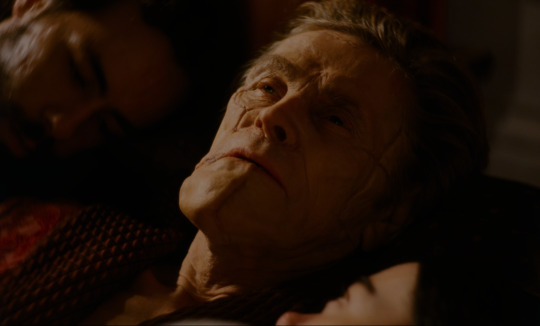
WILLEM DAFOE, POOR THINGS
as "Dr. Godwin Baxter"
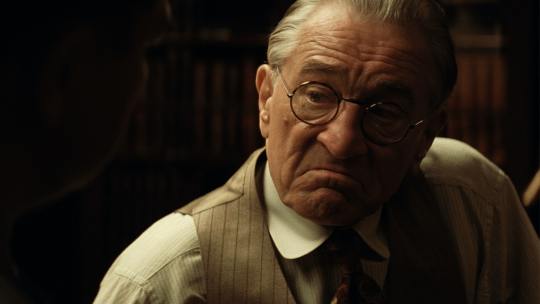
ROBERT DENIRO, KILLERS OF THE FLOWER MOON
as "William King Hale"
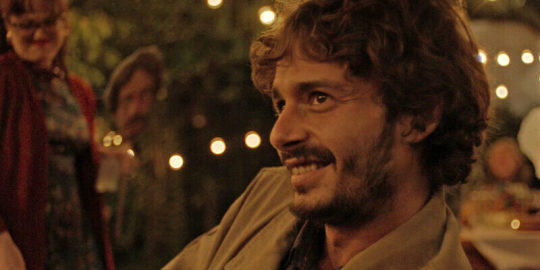
MATEO GARCÍA ELIZONDO, TÓTEM
as "Tonatiuh"

CHARLES MELTON, MAY DECEMBER
as "Joe Yoo"
AND THE CRISTAL GOES TO...

BEN WHISHAW, PASSAGES
as "Martin"
#2023 Film Awards#Best Supporting Actor#Ben Whishaw#Passages#Willem Dafoe#Poor Things#Robert DeNiro#Killers of the Flower Moon#Mateo García Elizondo#Tótem#Charles Melton#May December
11 notes
·
View notes
Text

Bibliography for FAQ
Works about Anarchism
Alexander, Robert, The Anarchists in the Spanish Civil War (2 vols.), Janus Publishing Company, London, 1999.
Anderson, Carlotta R., All-American Anarchist: Joseph A. Labadie and the Labor Movement, Wayne State University Press, Detroit, 1998.
Apter, D. and Joll, J (Eds.), Anarchism Today, Macmillan, London, 1971.
Archer, Julian P. W., The First International in France, 1864–1872: Its Origins, Theories, and Impact, University Press of America, Inc., Lanham/Oxford, 1997.
Cahm, C., Kropotkin and the Rise of Revolutionary Anarchism 1872–1886,Cambridge University Press, Cambridge, 1989.
Carr, Edward Hallett, Michael Bakunin, Macmillan, London, 1937.
Coleman, Stephen and O’Sullivan, Paddy (eds.), William Morris and News from Nowhere: A Vision for Our Time,Green Books, Bideford, 1990.
Coughlin, Michael E., Hamilton, Charles H. and Sullivan, Mark A. (eds.), Benjamin R. Tucker and the Champions of Liberty: A Centenary Anthology, Michael E. Coughlin Publisher, St. Paul, Minnesota, 1986.
Crowder, George, Classical Anarchism: The Political Thought of Godwin, Proudhon, Bakunin and Kropotkin, Clarendon Press, Oxford, 1991.
Delamotte, Eugenia C., Gates of Freedom: Voltairine de Cleyre and the Revolution of the Mind — With Selections from Her Writing, The University of Michigan Press, Ann Arbor, 2004.
Dirlik, Arif, Anarchism in the Chinese Revolution, University of CaliforniaPress, Berkeley and Los Angeles, 1991.
Ehrenberg, John, Proudhon and his Age, Humanity Books, New York, 1996.
Esenwein, George Richard, Anarchist Ideology and the Working Class Movement in Spain, 1868–1898, University of California Press,Berkeley, 1989.
Guillamon, Agustin, The Friends of Durruti Group: 1937–1939, AK Press, Edinburgh/San Francisco, 1996.
Guthke, Karl S., B. Traven: The life behind the legends, Lawrence Hill Books, New York, 1991.
Hart, John M., Anarchism and the Mexican Working Class, 1860–1931, University of Texas Press, Austin, 1987.
Holton, Bob, British Syndicalism: 1900–1914: Myths and Realities, Pluto Press, London, 1976.
Hyams, Edward, Pierre-Joseph Proudhon: His Revolutionary Life, Mind and Works, John Murray, London, 1979.
Jackson, Corinne, The Black Flag of Anarchy: Antistatism in the United States, Charles Scribner’s Sons, New York, 1968.
Jennings, Jeremy, Syndicalism in France: a study of ideas, Macmillan, London, 1990
Kline, Wm. Gary, The Individualist Anarchists: A Critique of Liberalism, University Press of America, Lanham, Maryland, 1987.
Linden, Marcel van der and Thorpe, Wayne (eds.), Revolutionary Syndicalism: An International Perspective, Scolar Press, Aldershort, 1990.
Merithew, Caroline Waldron, “Anarchist Motherhood: Toward the making of a revolutionary Proletariat in Illinois Coal towns”, pp. 217–246, Donna R. Gabaccoia and Franca Iacovetta (eds.), Women, Gender, and Transnational Lives: Italian Workers of the World, University of Toronto Press, Toronto, 2002.
Miller, Martin A., Kropotkin, The University of Chicago Press, London, 1976.
Milner, Susan, The Dilemmas of Internationalism: French Syndicalism and the International Labour Movement 1900–1914, Berg, New York, 1990.
Mintz, Jerome R., The Anarchists of Casas Viejas, Indiana University Press, Bloomington, 1994.
Moya, Jose, “Italians in Buenos Aires’s Anarchist Movement: Gender Ideology and Women’s Participation, 1890–1910,” pp. 189–216, Donna R. Gabaccoia and Franca Iacovetta (eds.), Women, Gender, and Transnational Lives: Italian Workers of the World, University of Toronto Press, Toronto, 2002.
Oved, Yaacov, ”‘Communsmo Libertario’ and Communalism in Spanish Collectivisations (1936–1939)”, The Raven: AnarchistQuarterly, no. 17 (Vol. 5, No. 1), Jan-Mar 1992, Freedom Press, pp. 39–61.
Palij, Michael, The Anarchism of Nestor Makhno, 1918–1921: An Aspect of theUkrainian Revolution, University of Washington Press,Seattle, 1976.
Pernicone, Nunzio, Italian Anarchism: 1864–1892, Princeton University Press, Princeton, 1993.
Carlo Tresca: Portrait of a Rebel, Palgrave MacMillian, New York, 2005.
Pyziur, Eugene, The Doctrine of Anarchism of Michael A. Bakunin, Marquette University Press, Milwaukee, 1955.
Ravindranathan, T. R., Bakunin and the Italians, McGill-Queen’s Univsersity Press, Kingston and Montreal, 1988.
Reichert, William O., Partisans of Freedom: A study in American Anarchism, Bowling Green University Popular Press, Bowling Green, Ohio, 1976.
Ritter, Alan, The Political Thought of Pierre-Joseph Proudhon, PrincetonUniversity Press, Princeton, 1969.
Salerno, Salvatore, Red November, Black November: Culture and Community inthe Industrial Workers of the World, State UniversityPress of New York, Albany, 1989.
Saltman, Richard B., The Social and Political Thought of Michael Bakunin, Greenwood Press, Westport Connecticut, 1983.
Schuster, Eunice, Native American Anarchism : A Study of Left-Wing American Individualism, De Capo Press, New Yprk, 1970.
Sysyn, Frank, “Nestor Makhno and the Ukrainian Revolution”, contained inHunczak, Taras (ed.), The Ukrainian, 1917–1921: A Studyin Revolution, Harvard University Press, Massachusetts, 1977.
Taylor, Michael, Community, Anarchy and Liberty, Cambrdige University Press, Cambridge, 1982.
Thomas, Edith, Louise Michel, Black Rose Books, Montreal, 1980.
Thomas, Matthew, Anarchist ideas and counter-cultures in Britain, 1880–1914: revolutions in everyday life, Aldershot, Ashgate, 2005.
Thorpe, Wayne, “The Workers Themselves”: Revolutionary Syndicalism and International Labour, 1913–1923, Kluwer Academic Publishers, Dordrecht, 1989.
Vincent, K. Steven, Pierre-Joseph Proudhon and the Rise of French RepublicanSocialism, Oxford University Press, Oxford, 1984.
Zarrow, Peter, Anarchism and Chinese Political Culture, Columbia University Press, New York, 1990.
#book lists#book recs#recommended reading#anarchism book lists#books about anarchy#books about anarchism#community building#practical anarchy#practical anarchism#anarchist society#practical#faq#anarchy faq#revolution#anarchism#daily posts#communism#anti capitalist#anti capitalism#late stage capitalism#organization#grassroots#grass roots#anarchists#libraries#leftism#social issues#economy#economics#climate change
3 notes
·
View notes